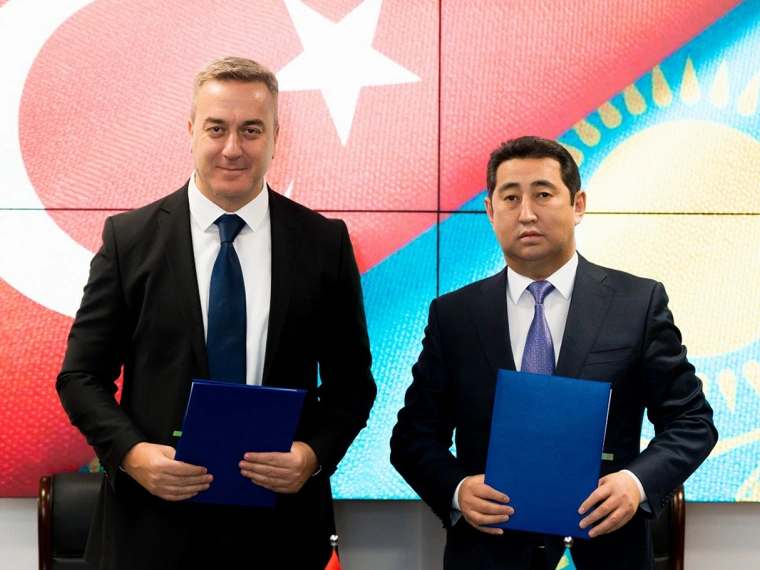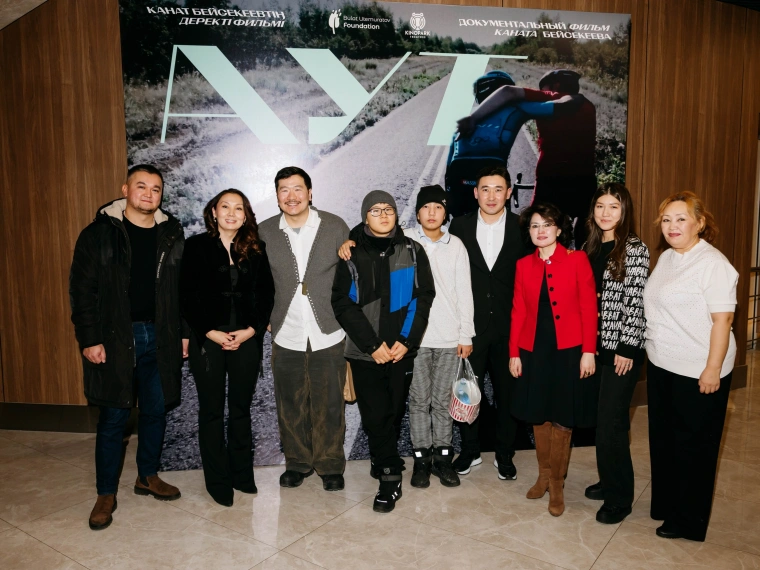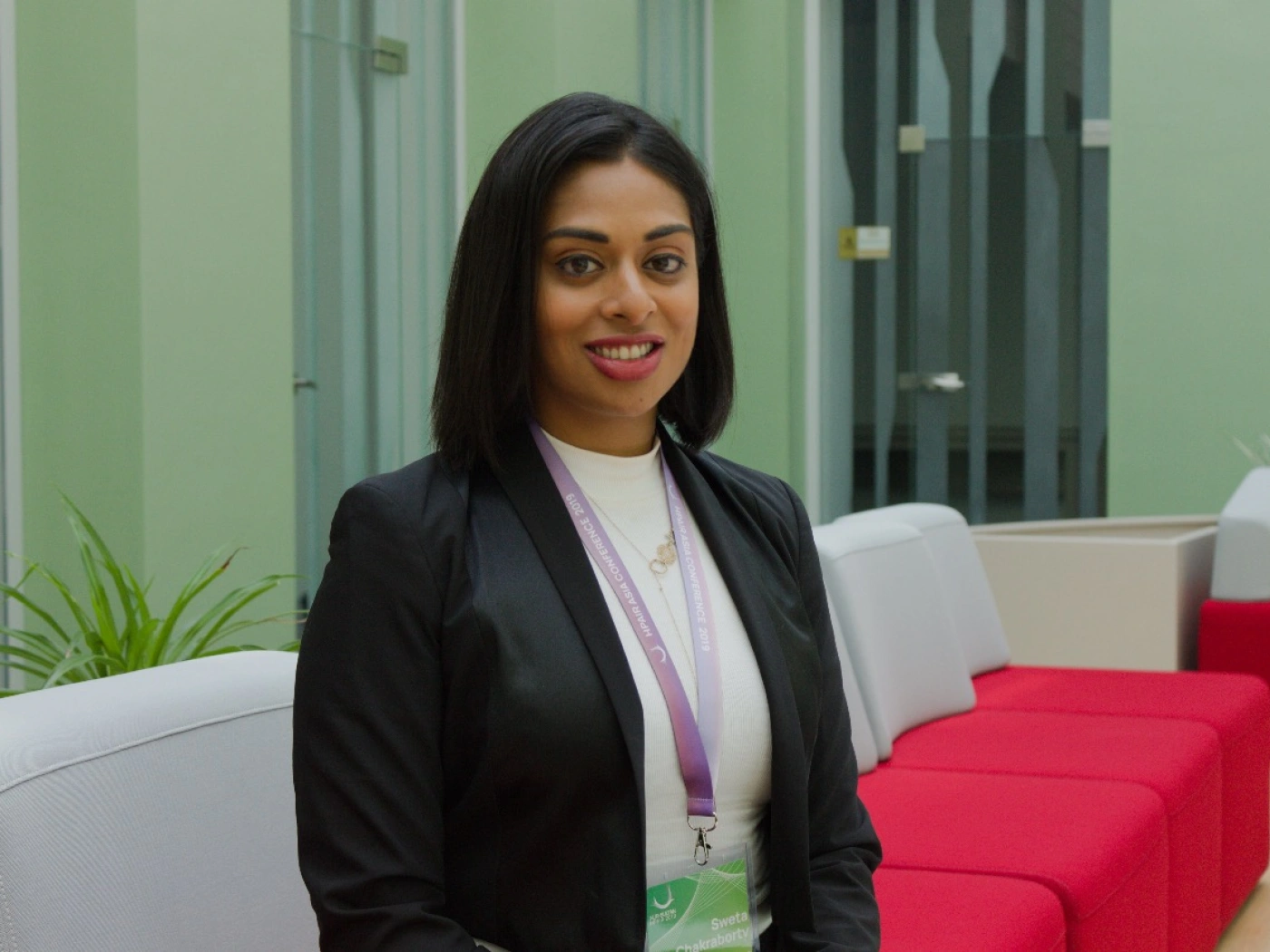
Dr. Sweta Chakraborty: «If we are lucky, the Earth will be three degrees warmer by the end of the century»
Speakers from all parts of the world were invited to speak at the Harvard University Project for Asian and International Relations (HPAIR) Asia Conference 2019. We talked with Dr. Sweta Chakraborty and learned more about climate change and the importance of public awareness in dealing with this problem.
Dr. Sweta Chakraborty is a Washington-based risk and behavioral scientist who studies the consequences and solutions to risks that threaten human security. Climate change, food, and water insecurity, social struggles, overpopulation, and pandemics are the main topics that Dr.Sweta is working on.
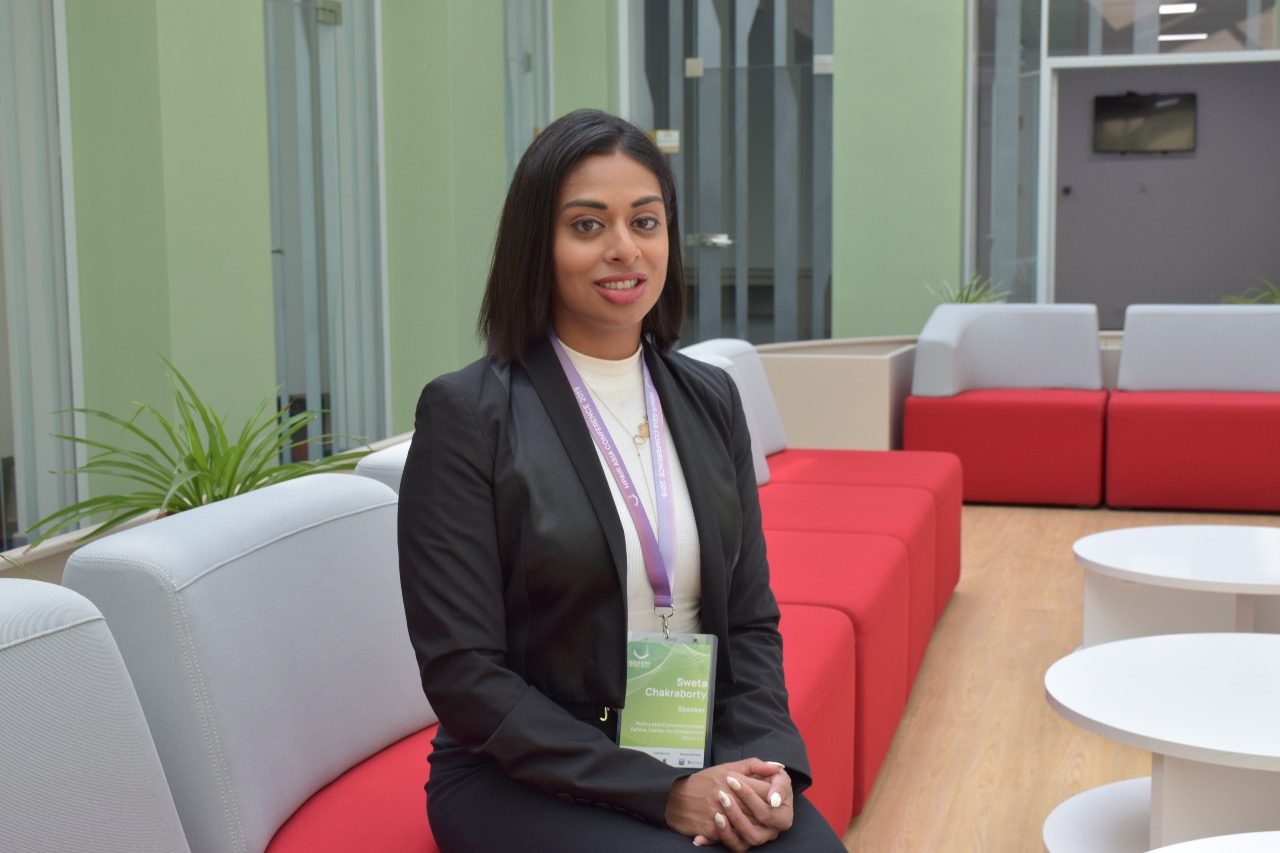
— You are a risk and behavioral scientist. Can you elaborate a little bit on that? What do you study and how it is related to climate change, the environment, and security?
When I started my doctoral studies I applied behavioral science to healthcare. There was a real issue with patients not taking their medicine in compliance with their doctors. What I learned was that sometimes, a real risk of something happening isn’t aligned with what your brain tells you is a risk. So, even though a doctor will tell patients that they are going to have a heart attack if they do not take a preventative risk pill, people will still act like “no, the probability that I get a heart attack isn’t that high”. And that happens even if a doctor, an authority figure, tells them so.
This is a phenomenon regarding the way our brains interpret risk. That is the behavioral science study of how we process information. Based on that, on how you think about behavioral outcomes, how can you use that knowledge, which I applied to my doctoral studies, to address the biggest risk I see – which is the fact that our planet is warming? The environment that we have gotten comfortable with for millennia since prehistoric times has been rapidly changing in a very short period of time. So if people can’t even come to terms with the risk of a heart attack, if their brains play tricks on them and don’t tell them the actual risk, how they are going to take preventive measures, and how are we going to save the Earth?
Studying behavioral science, I realized that there were broader applications for the subject. I moved from healthcare to infectious diseases. Studying why people don’t vaccinate, why they don’t wash their hands. These are very simple measures to take, but again our brain plays tricks on us and doesn’t let us think about things that are far in the future, or things that might be too scary. Those are the kinds of things that I wanted to understand and to correct through communication. That is what I mean when I say I am a risk and behavioral scientist. I study a huge spectrum of risks, from patients not taking their medicine, to food insecurity, water scarcity and ultimately to climate change.
When I moved back to the US after my doctoral studies, I started applying behavioral science to communication science to frame risks better, so that people receive the information in such a way that they don’t ignore it, and are accurately able to say: “Okay, this is how serious thisis and this is what I should do about it”.
— You are the founder and CEO of Adapt to Thrive. What is it? What is the purpose of that venture?
This is the company that I started a year or so ago. It came about from the fact that people are just not getting the information that they need to make better choices for themselves, their communities and their wider environment, their society. The purpose of it is to primarily rebuild communication and awareness around issues that are relevant and impactful. Think of all the stakeholders that are affiliated with a particular risk. You can pick any ripple effect of climate change. Whether it is an issue about getting access to the clean water, whether it is air pollution, whether it is a lack of food availability. Who are stakeholders in those different issues and challenges, and how can you communicate in a way that motivates behavior to act? That is the need that I saw, from which this venture came into being.
— What are the exact actions you take to increase awareness about these issues?
I have what is called “interactive live stage events”. I bring speakers from around the world, because I am fortunate to have a nice network. Here at HPAIR, I also have a community with incredible speakers. I am in a very fortunate position to know a range of experts.
Recently we had an event in Washington DC which was called “Women Leading the Future of Sustainability”. We brought four leading experts in their sectors there. They presented their views on the topic of sustainability and how to drive a sustainable future. There were women from the private sector as well as indigenous tribe woman, minority women bringing indifferent perspectives. We conducted a stage event that resulted in communication, collaboration, and common efforts.
What Adapt to Thrive does is bring people together, it not about just meeting experts to give information but about encouraging the audience to engage with each other and to leave with action steps to take.
Adopt to Thrive is unique in its combination of TED Talk methods and motivation to act. Theproblem with TED Talks is that you just put information up there, you watch a video and that’s it. What do you do? How is that influence you? What are we going to do with it?
The point of my venture was to make everyone participate in a conference by actually doing something, engaging in group activities, moderated debates, not just listening and watching. I think we need to act collectively because of the magnitude of what we all are facing, and not moving fast enough.
— Syria, African countries, Yemen – these are just a few of the pressing concerns on the global agenda. Given so many other urgent topics, how hard is it to get the international community to pay attention to climate change?
That is the challenge. We have such a saturated media environment, and the news is a constant 24/7 of whatever is attention-grabbing and headline-grabbing – that’s how people’s brains work. It is increasingly going from journalism to “clickbait” where they come up with one line just to grab your attention. People tend to like conflict and frightening or bad news over good and positive things. There is an opportunity there to frame climate change this way.
Fear does work. It is unfortunate, but it does work. The way to do it and the way I have been applying it is to shock people with the facts and the harsh reality of them. We scientists need to be speaking about those facts with more confidence; most scientists say “oh, it could be, it can be, it should be”, which is why it rarely sounds sure and confident. The way I set myself apart is that I say things very to the point. If we are lucky the Earth will be three degrees warmer by the end of the century. We are on that path. We have to completely derail and have mass behavioral change for that not to be the result. There is going to be suffering. We are already locked into global warming and we already know that. But how much suffering are we going to accept? How much can we alleviate now?
So I scare people and I try to create headlines because, unfortunately, it works. That is how you draw people in.
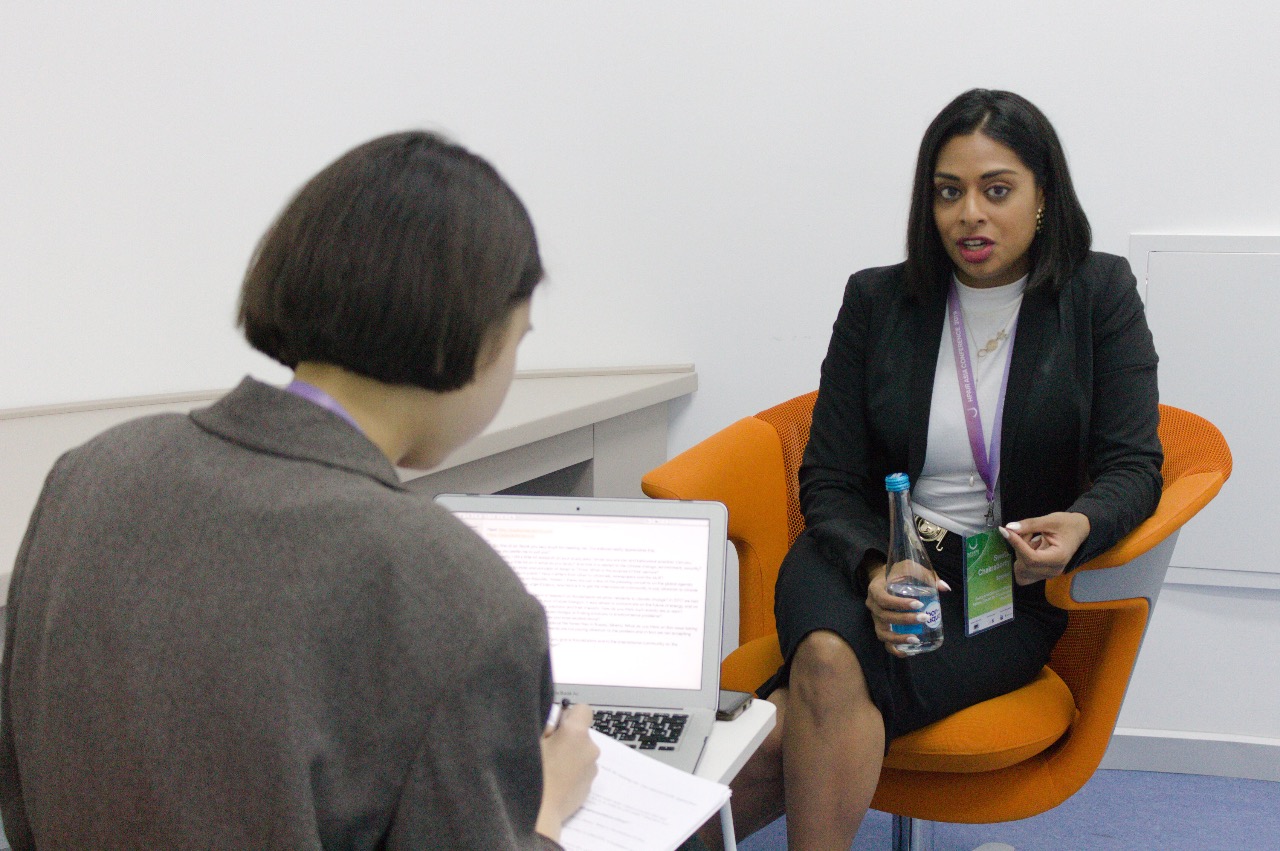
— In 2017 we had an EXPO the theme of which was “Future Energy”. It was aimed atconcentrating on the future of energy, and on innovative and practical energy solutions and their impacts. How do you think such events are or aren’t important in challenging climate change, in finding solutions to environmental problems?
Such events bring attention to Kazakhstan as a leader in Central Asia and to the fact that it wants to be part of the global landscape. I think Kazakhstan is doing an incredible job in showcasing that it wants to be part of the movement towards progress, towards solutions. It appears that the leadership in the country is supportive of that, and so are the people rallying around it. Events like EXPO 2017 are helpful. It also a reason why HPAIR chose Nazarbayev University to partner with. It is impactful, and you are going in the right direction.
— What is the “We Don’t Have Time” app? What is the importance of having it on your phone?
I encourage everyone to download it. It is an online platform that brings together campaigns, efforts, groups, communities, individuals. It allows you to join forces, regardless of where you are. You can share ideas, different activities that you are engaging in or that you would like to engage in. This app is an opportunity to find collaboration.
The concept of the app is that everyone joins it, and you can highlight something negative you see related to climate change. One example is where somebody walked into a KFC where you can throw your trash into a bin which is divided into recycling and other trash. But then if you open the cabin underneath you realize that it is just one bin. So app users took a picture of it and shared it publicly. Stuff like this happens a lot. The question is how do you makethose people, individuals, policymakers, companies or the president of a country accountable?
This app is an opportunity to bring light on issues and publicly shame corporations. Through the “We Don’t Have Time” app you can send “shame” to those companies and whoever. If this sort of campaign picks up, something will happen in the real world, like formal letters on behalf of the “We Don’t Have Time” community to that individual, to that company saying,“This is not acceptable, we are creating this global collaboration against this practice”. Similarly, you can send “climate love” which is basically a “like” or “heart” to showcase things that were done well.
— You may already know about the forest fires in Siberia, Russia. What do you think about this issue, taking into account the fact that governments are not paying attention to the problem and are not taking crucial steps to tackle it?
Teleconnection is a term that meteorologists used to talk about how the climate is all related. It doesn’t matter where you are, there will be some parts of the world that might notexperience climate impacts now, but they will – it is inevitable. These nation-states are arbitrary boundaries. We all share the planet and it doesn’t matter where you live, you aregoing to be impacted by decisions of governments elsewhere, of your neighboring governments as well as of your own.
Wildfires are not a unique phenomenon. It is happening all over and we are going to see its increase. The United States experiences severe wildfires in the West. We used to have seasonal wildfires. Now because of climate change and temperature increases, we are starting to see them year-round. That might be the same reason why it is happening in your part of the world.
We are seeing other parts of the world experiencing it sooner and faster. That is an example of what to expect because we are connected.
What I would encourage governments to do is to recognize the problem, to look at examples of what is happening elsewhere, and to learn from it. We are one ecosystem. You are not immune, and there is nowhere you can be immune. If you are along the coast you are going to experience rises in sea levels. If you are in agricultural zones close to the equator you are going to experience drought and soil erosion. There are things that can be learned in terms of what Russia does not want to see happening in Siberia and what the US government does not want to see happening there. I absolutely have to criticize our administration. Our administration is pathetic in its inability to react to what we know to be increasing, impactful and frequent events: the wildfires. It is completely disruptive, it impacts people’s lives, and it is so expensive after the fact. It is way more expensive than proactive risk management. If we spend a hundred million dollars on prevention we are saving a hundred billion dollars later. If these governments want to prevent that type of expenditure down the line they will invest now in climate mitigation to prevent these types of impacts, like wildfires becoming more intense and frequent.
— In a nutshell, what message would you give to the international community on the importance of fighting climate change?
It doesn’t matter who you are or where you are, we all live on a shared planet. Until we figure out space travel and how to colonize another planet and properly leave Earth, this is all we have. We all must protect it now.
We need to challenge our brains, we need to understand how our brains work. The problem is that we don’t process risks that seem far away or slow-moving. We need to overcome our innate biases against recognizing that there is going to be shared suffering.
The best way to prevent those worst cases of suffering is to overcome our inability to see the future and to start acting now. That is my message to the international community.




